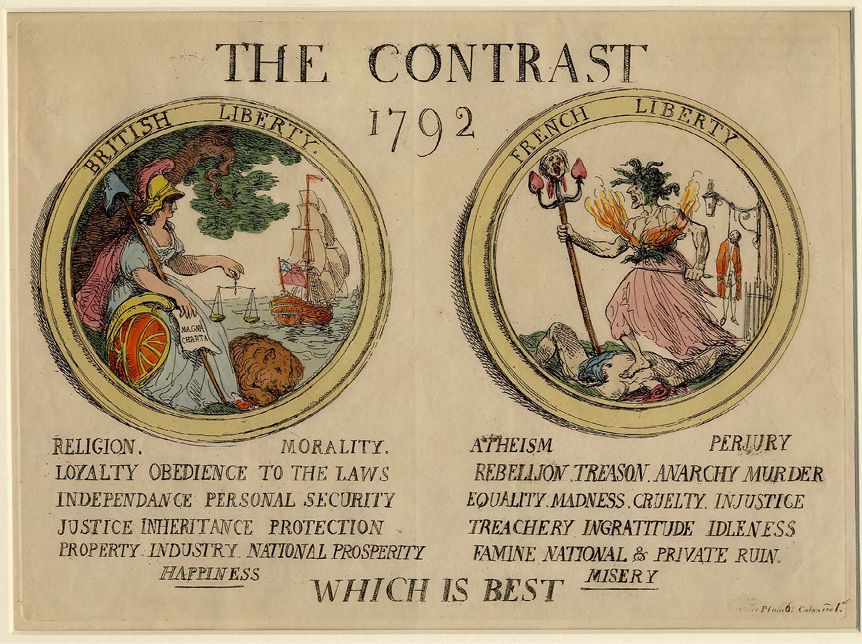Why liberals should engage in the Culture War
SUGGESTED



Perhaps unsurprisingly so. It is indeed not immediately obvious why libertarians, or indeed liberals (see here for a discussion of the difference), should take part in the Culture War. There are important exceptions to this, but in the main, woke progressivism is not imposed by the state. It is a form of elite groupthink (or rather, intra-elite status competition), which then “trickles down” (sorry!) into mainstream culture, where it turns into peer pressure and social conformism. There is a woke cultural elite, but it is largely separate from the political elite. This is why it thrives so easily under right-wing governments, e.g. a Tory government in the UK, a conservative-liberal coalition in Germany, or even President Trump in the US.
Now, nobody ever said that a liberal society is a society without peer pressure. In a society that is politically liberal, but socially conservative, there may be social pressure to attend church, get married, and have children. Is a woke society, where you are under pressure to repeat the latest fashionable platitudes about “transphobia” and “white privilege” really all that different, qualitatively?
Nonetheless – I believe that liberals should not only participate in the culture war, but be at the forefront of it.
Woke progressivism and economics
Liberals who prefer to stay out of the Culture War see it as a distraction from more important issues, such as our core area: economics. I can see why. With double-digit inflation, a housing crisis, an energy crisis, and a healthcare system that is falling apart: should we really be banging on about pronouns and diversity quotas?
But it is a mistake to treat the Culture War as somehow separate from economics. There is a huge area of overlap.
Woke progressives believe that differences in outcomes – including economic outcomes – between different subgroups of the population are the result of discrimination, prejudice, bigotry and hidden power structures. They feel under no particular obligation to show that that – as opposed to, say, different people simply making different choices – is indeed the reason. They just assert it.
The liberal approach to such matters is a fundamentally different one. For us, these are strictly empirical matters. We may have a gut feeling about what might be causing economic outcomes, and some explanations may sound more plausible to us than others, and/or chime with our own personal experience. But we also know that gut feelings are a treacherous guide to economics, and that our own “lived experience” may be wildly unrepresentative.
You cannot just assert that X is caused by Y, and then treat is self-evidently true, and accuse everyone who doubts it of bad faith. “X is caused by Y” is a hypothesis. A hypothesis is a good starting point, but it still needs to be tested. And you need to be open to the possibility that it could be wrong.
One reason why liberalism is irreconcilable with woke progressivism is that woke progressivism is usually simply empirically wrong. Take the gender pay gap. The fashionable opinion on the gender pay gap is that it is the result of hidden patriarchal power structures, sexism, and misogyny. But once we look at it empirically, as some of my colleagues have been doing for many years, it quickly turns out that this is simply not true. The gender pay gap exists for perfectly harmless and inoffensive reasons.
Pointing this out is an economic argument. But it also means engaging in the Culture War. It means fighting the Culture War armed with economic logic. Woke culture warriors make economic arguments (or rather, assertions) all the time. To say that the gender pay gap is the result of sexist discrimination is an economic argument. To say that the Western world grew rich through the slave trade and colonialism is an economic argument. To say that capitalism is a racist system is an economic argument. Woke culture warriors have already parked their tanks on our lawn. It doesn’t matter whether we want to fight a Culture War or not. We are already in one. The other side has already started it.
Norms of debate
“The Culture War”, narrowly defined, is usually about hot-button issues like gender, race, and Islam. But it is also about a more general question, which is: how should we handle disagreements in society?
Should we engage with opposing ideas, and try to explain why we think they are wrong?
Or should we try to mobilise a mob to shout down our opponents, and drive them out of the public space?
Naturally, liberals are in the former camp, woke progressives in the latter. This is important even if we do not care about the issue of the day. Once woke “debating” norms are widely accepted, there is no way they are going to remain confined to Culture War issues as we now understand the term. They are going to spill over into other areas, and spread outwards.
As the Molly-Mae episode showed last year – this is already happening.
Coalition-building
As my colleague Dr Steve Davies has shown, Britain has recently gone through a political realignment. Economics is no longer the prime determinant of where people see themselves on the political/ideological spectrum. Matters of culture and identity have taken that place.
This is not true for everyone, but it is certainly true for much of the political Right. A lot of right-wingers are much more animated about Culture War issues than about economics. If we can form an alliance with them over our shared opposition to woke progressivism, they may also listen to out economic arguments more sympathetically.
If we don’t do that, the anti-liberal Right – the post-liberals and communitarians – will fill that space.
“Forming an alliance” does not mean that we have to have identical, or even particularly similar positions. An anti-woke liberalism can still be very socially liberal. It will still be very different from “Gammon” conservatism.
But at least in the context of 2020s Britain, it would be inappropriate to engage in bothsidesism here. Authoritarian impulses come almost exclusively from one side of the ideological spectrum: the woke, progressive Left. The much-maligned “Gammon” are not the ones who are trying to force their cultural values on everyone else. Fortunately, Britain does not have much of a “Trumpian” Right, let alone an “Orbanite” Right. The anti-woke conservatism we have is relatively benign. We should be grateful for that fact, and make the most of it.
___
Suggestions for further reading/watching/listening:
- Should Liberals Engage in The Culture War? | IEA Debate | Reem Ibrahim and Harrison Griffiths vs Marc Glendening and Kristian Niemietz
- A Silent Revolution: The intellectual origins of cancel culture by Marc Sidwell
- Britain has a cultural elite. Why not call it that? by Kristian Niemietz




